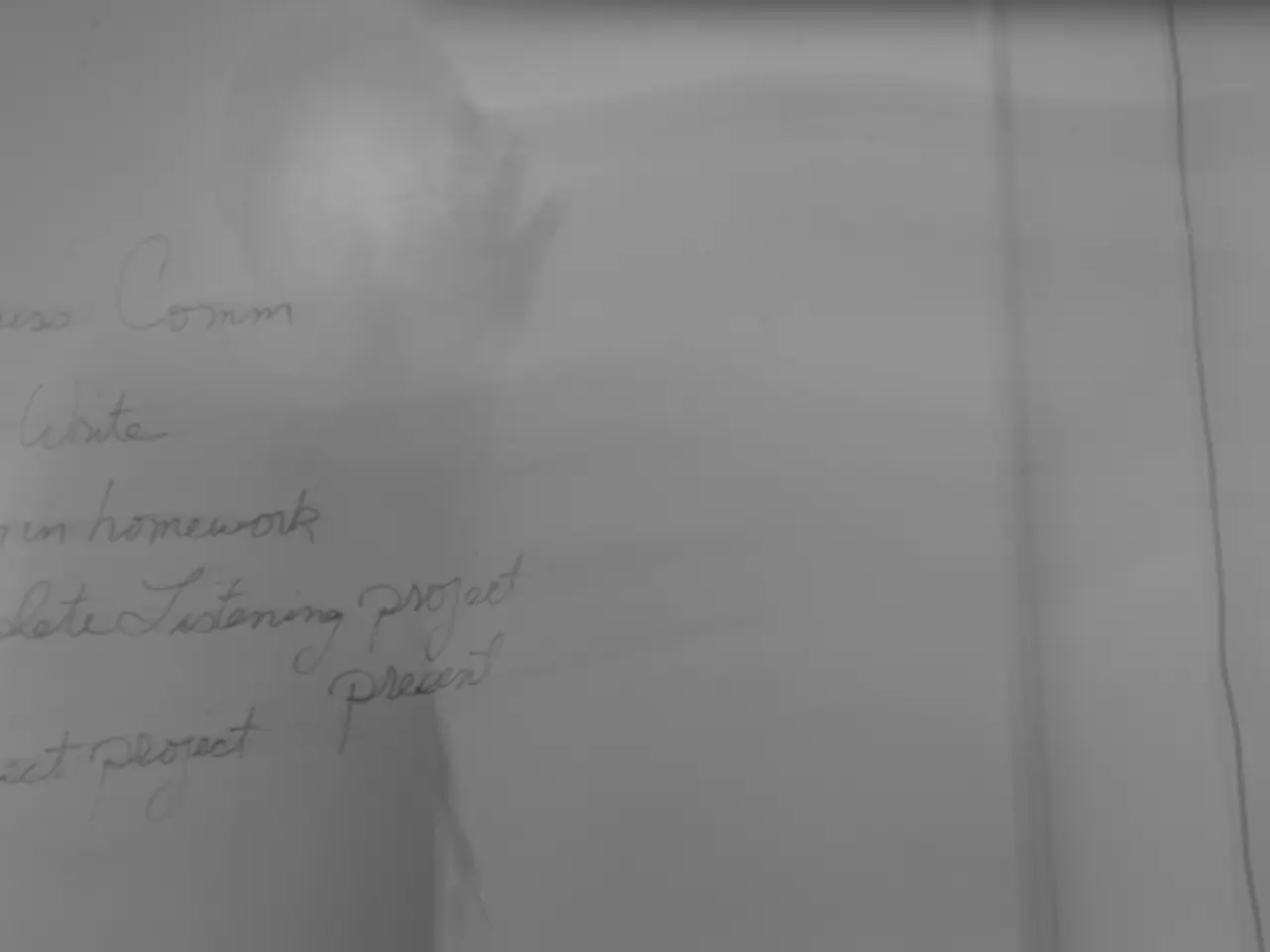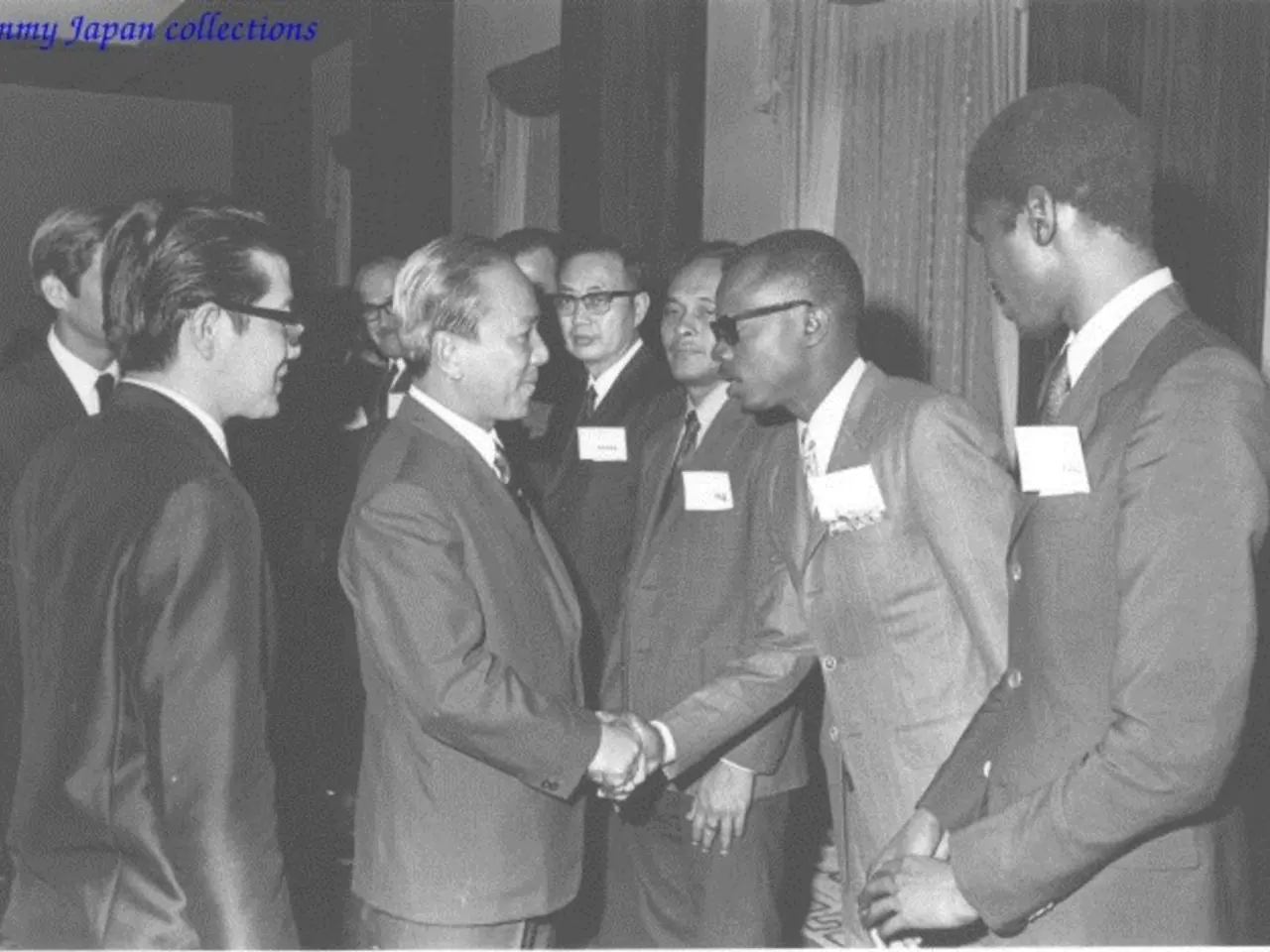Settling the Trade Ruckus: EU-US Customs Agreement Negotiations
Leaders Merz and Macron urge expedited customs agreement with Trump
The clock is ticking, as the deadline for a customs agreement between the US and the EU comes rushing in less than two weeks. A new proposition from the US is floating around in Brussels, which is currently under review. Chancellor Merz and French President Macron are advocating for a swift conclusion to this trade dispute. EU Commission President von der Leyen has stated the EU is ready to reach an agreement, but is also preparing for the possibility of a deal that will not satisfy both parties.
The heads of state have implored von der Leyen "to reach a quick agreement, a quick understanding with the Americans in the less than two weeks remaining," as Merz stated after the summit, addressing reporters. Macron too joined the call, urging for "a quick conclusion of an agreement, it should not drag on any longer." However, he emphasized, "I don't want it at any price."
Previously, Merz had criticized the Commission's negotiating tactics as "too complicated." The Chancellor expressed the need for a basic agreement for the automotive industry, chemical and pharmaceutical companies, as well as steel and aluminum exports, at an event of the Federation of German Industries (BDI). Merz clarified, "I haven't criticized the Commission. I just wanted to make it clear that in the remaining time, we can't agree on a sophisticated trade agreement."
There is growing momentum for an agreement that resembles the Swiss Cheese model; a general US surcharge of around ten percent could remain in place if exceptions apply for important sectors such as the steel and automotive industry. Both industries are heavily affected by Trump's tariffs, with an increased rate of 25 percent applying to them.
Von der Leyen informed the heads of state and government about the current status of the negotiations. "We have received the latest US document for further negotiations. We are currently evaluating it," she told reporters.
The US President's trade policies have sparked disputes with trading partners worldwide. Trump imposed high additional tariffs on numerous countries in April, later reducing them to 10 percent for 90 days. Should negotiations fail, the EU has prepared counter-tariffs, which remain at the ready. This includes a list of tariffs on items such as jeans, aluminum products, and motorcycles, which EU countries have already approved. Further increases are underway, potentially affecting US products worth around €100 billion in total, while US tariffs are estimated to affect European products worth €370 billion.
Dialogues regarding digital companies' rules and consumer protection regulations form another part of the tense negotiations. The Commission has ruled out changes to EU laws, but seeks to communicate openness for discussions with Washington.
In the background, since April 2025, the US imposed additional tariffs of 25% and later up to 50% on steel and aluminum imports, justifying them under national security grounds. The EU responded with reciprocal tariffs, which have been delayed multiple times, most recently pushed to July 9, 2025, to enable negotiations with the US to find a quick resolution. The US also considered a "reciprocal tariff" system, which would impose additional duties proportional to tariffs levied by trading partners, potentially affecting EU exports with increased costs up to 20%.
The resolution hinges on mutual concessions related to tariff rates and customs cooperation frameworks, with a deadline approaching in early July to finalize any deal. The focus remains on avoiding escalation and fostering a more balanced transatlantic trading relationship.
The Commission is considering increasing the number of EU-funded projects in the field of education and training, as a means to promote economic growth beyond the trade dispute. Such projects could potentially support the growth and competitiveness of industries heavily affected by the ongoing trade ruckus.
Political leaders, such as Chancellor Merz and French President Macron, have called for a swift resolution to the dispute in finance, aiming to minimize the potential economic impact of additional tariffs on both sides. However, they stress that the agreement should not compromise on core principles.




